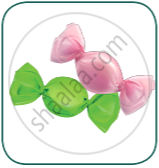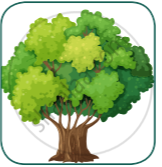Advertisements
Advertisements
Question
Fill in the following blanks using proper word from ‘who’, ‘when’, ‘what’, ‘how’ or ‘why’.
I'll tell you ______ it is time to leave.
Solution
I'll tell you when it is time to leave.
APPEARS IN
RELATED QUESTIONS
Here is a question of indirect speech. Put it into reported speech.
He said, “Was it up here that Pa got bitten by the snake?”
Use of although/ though/ even though/but
Read the following sentences.
- Although the café was crowded, we found a vacant table.
Although Sadie has passed her test, she never drives.
The clause with although can also come after the main clause.
For example: We found a vacant table, although the café was crowded. - Though I liked the pullover, I didn’t buy it.
Though it was pouring cats and dogs, he set out for his journey.
We can use though at the end of the sentence.
For example: I liked the pullover; I didn’t buy it, though. - We can use ‘even though’ in the same way.
John looked quite fresh even though he had just recovered from jaundice.
‘Even though’ can be used at the beginning of the sentence also.
‘Even though’ I hate Gopal, I shall try to be nice with him.
‘Even though’ is stronger and more emphatic than ‘although’ - We can join two clauses with ‘but’.
For example: We wanted to go abroad, but our passports were not ready.
We use these words (although, though, even though, but) to show the contrast between two clauses or two sentences.
Although, though, even though and but can be used as conjunctions to introduce afterthoughts, contrasts, or restrictions and conditions.
Find out the sentences from the lesson in which any of these words are used.
Discuss in pairs/groups the purpose they serve.
Pick out examples of Inversion from the poem.
From the story (Part I and Part II), find 4 words that begin with the prefix ‘un-’ and write their opposites.
- ______ × ______
- ______ × ______.
List as many words as you can that will go with the given adjective. (At least 3 each.)
Example: sudden - sudden change, sudden shower, sudden fall
- simple
- odd
- only
- honest
- long
Read the word. Write other words which have the same ending.
eventful (- ful)
Rewrite the following sentence replacing ‘as soon as’ by ‘No sooner than ’.
As soon as the Bill is passed, it will become an Act.
Find the antonyms for the underlined word in the following sentence.
Pongo carefully searched the narrator’s pockets.
Make sentences in the present perfect continuous tense using the verbs.
The workers ______ higher wages for a long time.
Report the following sentence.
Pushpa said, “Do not spoil the eco-system.”
Underline the verb and identify the tense form.
He received your messages last night ______.
Combine the pair of a sentence using the appropriate connector.
They checked the packet twice. Then they sealed it.
All was dark again. Night ______ (fall).
Look at the picture and complete the following.

Nila told Miruthula ______. Miruthula said that the idly ______. Nila ______ was delicious too. She also said that they had added Kashmiri chilli. Miruthula said ______very much.
Match the following.
| 1. If they worked hard | she will come to our party. |
| 2. If I invite Shalini | I would have bought these shoes. |
| 3. If I had got enough money | they would win. |
Add 'r' , ‘er’ or ‘or’ to get the name of the person who does the activity. Take turns in class to make sentences with the words you have formed.
e.g: A teacher is a person who teaches. Teach + er – Teacher.
- use
- buy
- sail
- watch
- operate
- foreign
- bake
- write
- govern
- act
Refer to a dictionary for the meanings and choose the odd one.
Honest
Fill in the blanks.
 |
 |
 |
| Students are going ______ school. | There are ______ chocolates. | The tree is ______ big. |
Answer the following.
 |
||
| Name of the object | In your mother tongue | Use in a sentence |
Fill the blank with the clipped word.
We visited the ____________. (zoological park)
Write the past form of the verb.

sing- ______
Sometimes, a sentence can end with a preposition. Read the sentence given below.
The preposition ‘in’, ‘at’, and ‘for’ occur at the end of the sentence. This is acceptable in usage.
My father gave me some pictures to look ______.
Complete the following with appropriate conditional clause.
We will miss our train, ______.
Refer to the dictionary and find out the meaning of the following foreign word/phrase. Use them in sentence of your own:
carte blanche
Spot the error in the following sentence and rewrite them correctly.
After the complicated surgery, the patient hoped of complete recovery.
Pick out the finite verb in the following sentence:
The chairman being away, the clerk is unable to approve the proposal.
Combine each of the following pair of sentence using participle. The first one is done for you.
The girl entered the room. She was singing a song.
Identify the error in each of the following sentence and rewrite them Correctly.
Abdul as well as Karim deserve praise.
Write the compound word from the pictures.
 |
+ |  |
| ____________ | ||
Rewrite the following sentence according to the instruction given in the bracket.
They opened the window because they did not want the smoke to go into the kitchen.
(Use: so…. that)
